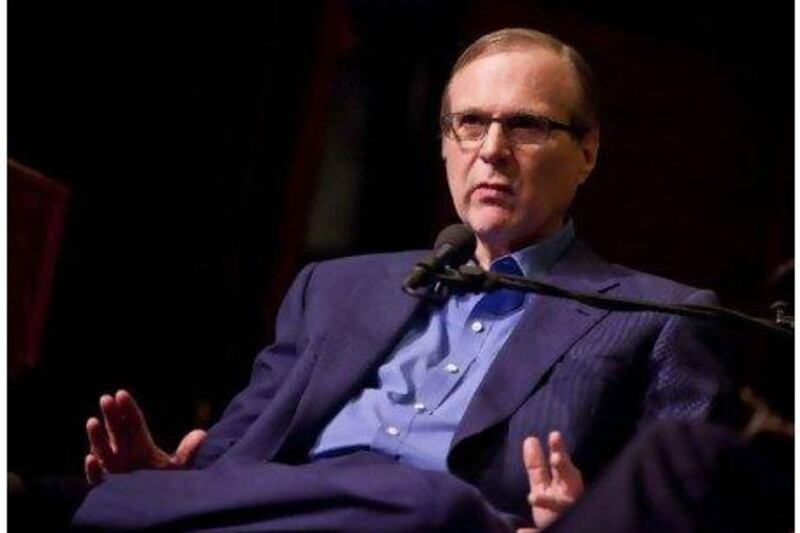Review: Idea Man, by Paul Allen
Paul Allen describes his role in co-founding one of the world's most recognisable companies, Microsoft, as a "one-dimensional" period in his life, which eventually gave him the wealth to pursue all the other things he was passionate about.
Q&A:Microsoft's co-founder.
Last Updated: May 23, 2011
Who is Paul Allen? He is a US billionaire investor and serial philanthropist who co-founded Microsoft with his childhood friend Bill Gates.
Does he still work at Microsoft? No, he left way back in 1983, eight years after founding the company in 1975.
What does he do now? Microsoft's initial public offering in 1986 made Mr Allen a very rich man. He is the chairman of Vulcan, an investment and project management company that manages his stakes in various firms and ventures.
Like what? Mr Allen founded the Allen Institute for Brain Science, a research establishment that distributes its findings free to organisations around the world. He owns the Seattle Seahawks, an American football team, the Portland Trail Blazers, a professional basketball team, and co-owns the Seattle Sounders professional football team.
And from a reader's perspective, this is certainly evident. Although his fractious relationship with Bill Gates, the co-founder, is an interesting insight into the development of a global giant, the first half of the book is too technology heavy. So much so that most people would simply keep turning the pages. Jargon such as "8080 circuits", "CP/M friendly CPU" and "FORTRAN" causes the layman to sigh and hope that some description of "real life" to which readers can relate actually makes it on to the page. And it eventually does.
The liberation with which Mr Allen talks of leaving Microsoft and the wealth it created is felt by the reader because we get to hear about basketball teams, astronauts and life-threatening illnesses. It is then that we truly understand what a remarkable life Mr Allen has experienced, having the money to go out and invest in sports teams, develop spacecrafts and give hundreds of millions of dollars to charity. His wide-ranging views and interests make the rest of the book easily digestible.
The dialogue with Bill Gates certainly makes interesting reading, but it is so one-sided that the reader gangs up with Mr Gates for the sake of trying to represent a balanced argument. In the description of one ferocious encounter, Mr Allen quotes Mr Gates as ignorantly repeating: "You've got to do what the customer wants!"
So if you're interested in technology or Microsoft, then this book will push your buttons. If you're not, but you've ever wondered what to do if you won the lottery a hundred times over, the book is also worth buying.
Top 5: Companies in the world by market capitalisation
1 PetroChina.
2 ExxonMobil.
3 Microsoft.
4 Industrial & Commercial Bank of China.
5 Apple.
Source: FT Global 500 2010
The Quote "Some people are motivated by a need for recognition, some by money, and some by a broad social goal. I start from a different place, from the love of ideas." Paul Allen, co-founder of Microsoft






